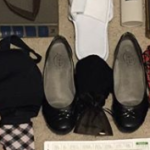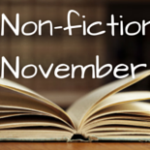Before time was measured, stories were told.
Several men are gathered around a campfire. Three of them are dressed rather similarly in animal skins, with spears nearby. The other two carry bows and arrows, and are listening watching intently as one of their hosts–using gestures, pantomime, sounds, and some words–explains what they are doing out in the jungle at night:
We found large paw prints in the mud caused by the big rain. We followed them down the mountain. Suddenly we heard noises in the trees–the beast was not alone. We crouched low, moving carefully toward the clearing. We looked out over a big boulder, and we saw many of the creatures eating their kill. As we turned away, a twig snapped. The beasts heard, and began to sniff the air. We ran as quickly as we could. Now we must wait until dawn to hunt them.
Throughout the world, in valleys and forests and caves dimly lit by flickering fires, stories were told. The invention of the wheel and the discovery of a new fruit or vegetable is not really what interests me; it is the excitement of the first person as he or she ran to tell others about it.
Stories are amazing things. They were invented by the first people to walk the Earth as a way to communicate with each other–be it about their latest kill, the birth of their child, or about what they believed to be true or false. Communication itself began with storytelling, because it was a way to create communities. Those who told stories were bound together by a commonality, a sense of shared experience.
That’s all well and good, you might say, but what does this have to do with the here and now? Storytelling is dead, didn’t you hear? And it’s been replaced by reality tv, the Internet, and standardized testing.
While I bemoan the existence of so many things that distract us from our humanity (and I have a stormy relationship with the ebook concept), I must say that I am constantly amazed at how modern storytellers are harnessing these “newfangled contraptions” and using them to create astonishing things.
Not convinced? Here’s the proof.
[Blank] as Storytelling
Theatre — Starting off with a rather obvious one. The words “theatre” and “storytelling” mean essentially the same things, and are often used interchangeably. Sadly the days of bards are gone, but the spirit of “the traveling minstrel” is alive and well in things like theatrical tour/traveling companies. Other than jazz, the American Musical is the only truly American form of music/storytelling. And although shows like Oklahoma! may be considered a bit silly nowadays, shows like Avenue Q and Spring Awakening are hailed as groundbreaking methods of telling a story.
Music — A natural, and just as old, a method of storytelling as theatre. I’ve discussed before how music can inspire a story, but it also holds true that piece of music itself is a story. Even instrumental music can weave a story.
Art — Sometimes a single canvas or snapshot can tell an entire story. One of the artists who was best at this was Norman Rockwell–he is best known for his oil paintings, but he was also an accomplished photographer. And keep in mind that intriguing and meaningful stories can often be found in the strangest places.
Games/Gaming — I know, I know, a game like backgammon is probably not a form of storytelling (although if they can do it with Chess, why not backgammon?). But the more complicated games, such as Dungeons and Dragons and World of Warcraft, are built around entire worlds in which stories exist–including your own. There exists a type of filmmaking known as Machinima, in which the writer’s actual script is filmed within a game.
Poetry — Wait, poetry is boring, you say? It’s all just stupid junk that you had to analyze in high school English? I know how you feel. Poetry is sometimes a drag–especially when it’s older poetry that isn’t written in contemporary styles or languages. Or (possibly worse) it’s poetry that involves black bérets, bongos, and finger-snaps. I dislike both of those options. The good news is, poetry can be awesome. It can be alive and dynamic–it can help us show indignation, make us laugh…and it can even be a little bit sexy.
Television — Rather a no-brainer, of course, so I won’t go into too much detail about it here. Suffice to say that you can turn to any channel and get a story of some kind (even if it’s a lame one). My personal favorites are shows like CBS’ “Castle,” ABC’s “NCIS,” and FOX’s “gLee.”
What Storytelling Does
In a word, everything. For example:
Places to avoid — “That restaurant is nasty. I saw on the news last night that they keep failing their inspections…”
People to avoid — “Don’t take College Algebra with Smith, he’s horrible. I had it with Demarco, he’s way better.”
Foods to try — “I tried some kiwi the other day–it was so good!”
Advice — “I interviewed with that company awhile back. I guarantee they’ll ask you what your dream job is.”
I could go on for a long time, actually. But the more I think about it, the more I believe that storytelling is meant to teach lessons–although sometimes the lesson taught and the lesson learned are two different things.
Storytelling also helps us make sense of a world that is often nonsensical. In one of her recent entries, one of my favorite bloggers* talks about her life in the aftermath of her sexual assault:
“There was a phase after the court case where I couldn’t read enough about the experiences of other women with rape, sexual assault, domestic violence and the court system. I think the librarian – if she ever bothered to look at my account, which I’m sure they’re too busy to do – must have thought I had one hardcore fetish.”
And it was really this particular paragraph that inspired this entry today. It’s a strange concept, but somehow it is comforting to know that other people have experienced the same things you have–you know that you are not alone. Sometimes you’re desperate to know that you’re “normal,” that you’re reacting the same way to an event that other people have. And if those people were “normal” and overcame it…that means you can too, right?
This brings me to the final chapter.
Where to Find Stories
My personal favorite place to get my story fix is from the books on my bookshelves, but not everyone is as elitist as I am. So where else can one get a good story? Answer: Almost anywhere.
The blogger mentioned above seems to have found her voice (and some healing) through her blog:
“Fast forward a couple of years and a few timid attempts to tell people what I’d been through and I found blogging. Suddenly those words that had heretofore only been read by my sister and father had a more public outlet. It was you. …You offered me a listening ear, support, anger when I couldn’t manage it myself…Writing it all out here has been key in my healing. (Note: it didn’t replace regular therapy – I did PLENTY of that too. I love me my therapy.) Where I used to have nightmares, I now have peaceful sleep. Where I used to feel my story pressing behind my lips waiting to be whispered to the next passerby, now the psychic pressure is gone.”
It is often not until we can others about our joys or sorrows that we can fully experience them. As the saying goes, “A joy shared is doubled; a sorrow shared is halved.”
Thankfully, however, not all experiences are traumatic. Many are wonderful, and it is those moments that lead to great stories.
People rag on YouTube quite a bit for being full of junk and stupid people doing stupid things, etc., but from a storyteller’s perspective it’s a gold mine (just ask the movie exec’s who spend millions of dollars advertising their films there instead of on tv).
So you’re a group of friends who want to do something fun together? Make a web series!:
The Guild — “A comedy web series about a group of online gamers, and how they interact online and offline. Winner of the YouTube and Yahoo best web series awards in 2008, winner of three Streamy Awards in 2009.” [Yea, they even have awards for online storytelling. That’s how you know it’s legit.]
Man in the Box — “Follow the office adventures of our Hero, Greg Bizjack (Mike Polk). Greg fancies himself the lone voice of reason in his remarkably ordinary office world. Watch his earnest coworkers torment him week in and week out.” [The show’s been on hiatus for some time, but the old episodes are good.]
A filmmaker, intent on getting the word about your movie out?:
Paper Ketchup — A teaser trailer for my friend Ryan’s film project. World premiere is April 15th!
The storytelling possibilities are almost literally endless. YouTube is also a great place for collaborative efforts, but that’s a different blog entry.
Final Thoughts
Before time was measured, stories were told. And long after we are gone, the stories will remain. Stories allow us to share, explain, consider, laugh, and grieve. Stories are essential to human life as breathing–and I can’t wait to read the next one.
*Charlotte Anderson is the resident blogger over at The Great Fitness Experiment. She’s awesome, and hilarious. She refers to her most recent offspring as “jelly bean.” Two thumbs up!
More on stories and storytelling
“The universe is made of stories, not atoms.” (Muriel Rukeyser)
“People did not wait until there was writing before they told stories and sang songs.” (Albert Bates Lord)
“There have been great societies that did not use the wheel, but there have been no societies that did not tell stories.” (Ursula K. LeGuin)
“Stories live in your blood and bones, follow the seasons and light candles on the darkest night–every storyteller knows she or he is also a teacher…” (Patti Davis)





